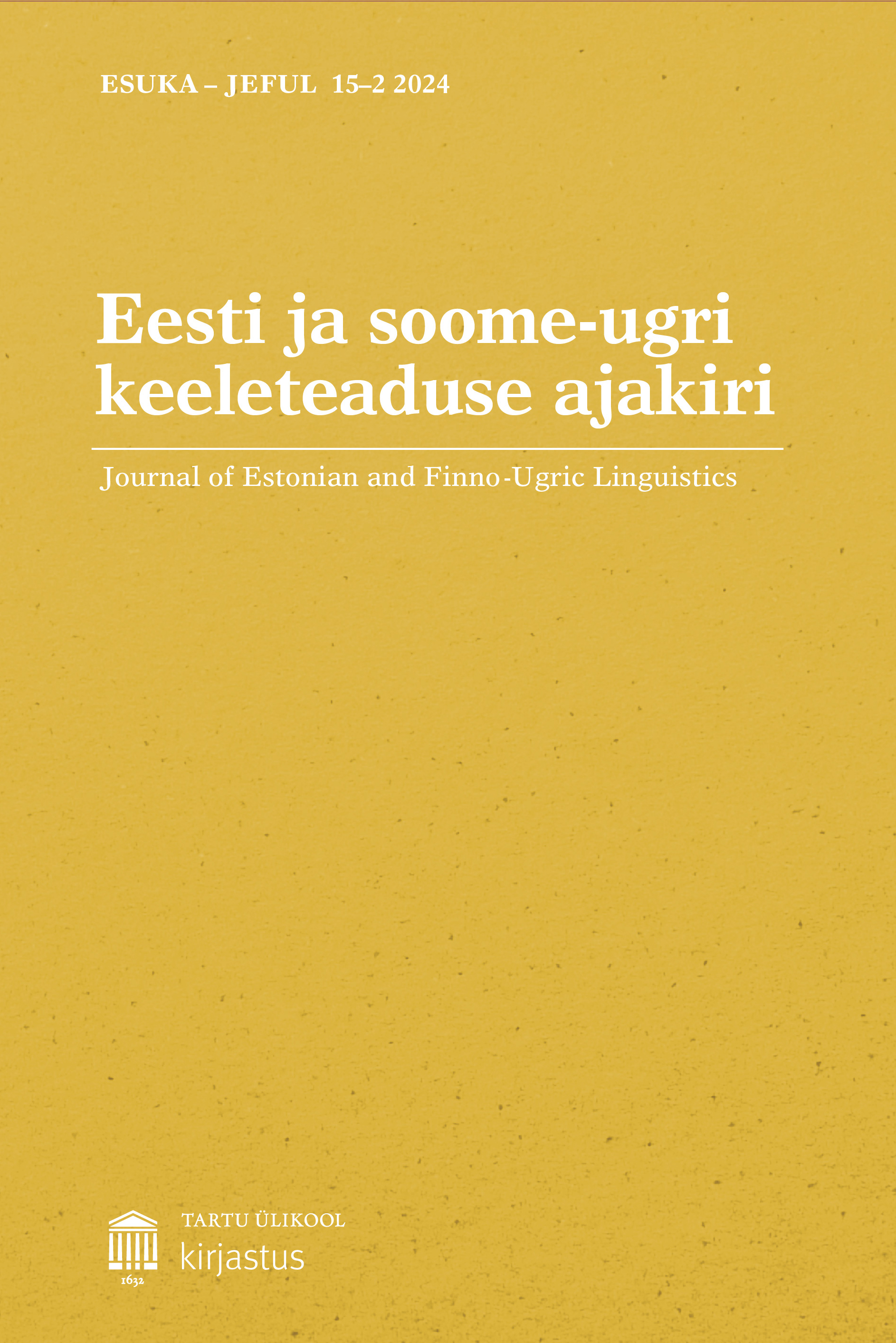An early Lord’s Prayer in a southern variety of Saami
DOI:
https://doi.org/10.12697/jeful.2024.15.2.05Keywords:
Lord’s Prayer, a southern variety of Saami, Georg Bruno, manuscript, Nicolaus Andreæ, history of written Saami, catechism, Isameie palve, lõunapoolne saami keel, käsikiri, saami kirjakeelte ajalugu, katekismusAbstract
Among the holdings of the National Library of Sweden there is a manuscript titled Pater noſter: Varijs Linguis ‘Lord’s Prayer: in various languages’, which contains 20 translations of the Lord’s Prayer. The last page of this manuscript is very defective, and its language was not identified in the first study to mention this manuscript (Biezais, Haralds. 1955. Ein neugefundener Text des lettischen Vaterunsers aus dem 16. Jahrhundert. Nordisk Tidskrift för bok- och biblioteksväsen 42. 47–54). However, last year it was found to be a southern variety of Saami. Earlier manuscripts of the Lord’s Prayer in Saami are unknown, making this potentially the oldest known Saami text in manuscript form that has survived to the present day. Although it has not been possible to decipher the entire text, this article provides a tentative transcription and compares it to the first known published Lord’s Prayers in Saami from 1619. Additionally, it briefly presents the manuscript and its history, and gives some background on the activities of the church in northern Sweden during the 16th century when such translations came into existence.
Kokkuvõte. Ernesta Kazakėnaitė, Rogier Blokland: Varajane Meieisa palve lõunapoolses saami keele variandis. Rootsi Rahvusraamatukogu kollektsioonis on käsikiri pealkirjaga Pater noſter: Varijs Linguis „Meieisapalve: erinevates keeltes“, mis sisaldab 20 meieisapalve tõlget. Käsikirja viimane lehekülg on osaliselt loetamatu ja selle teksti keelt ei tuvastatud esimeses uuringus, milles käsikirja mainiti (Biezais, Haralds. 1955. Ein neugefundener Text des lettischen Vaterunsers aus dem 16. Jahrhundert. Nordisk Tidskrift för bok- och biblioteksväsen 42. 47–54). Aastal 2023 avastas artikli esimene autor, et tegemist on ilmselt lõunapoolse saami keele variandiga. Muid varaseid saamikeelseid meieisapalve käsikirju ei ole teada, seetõttu on kõnealune käsikiri potentsiaalselt vanim teadaolev saamikeelne tekst, mis on tänapäevani säilinud. Kuigi kogu teksti ei olnud võimalik dešifreerida, esitatakse käesolevas artiklis selle esialgne transkriptsioon ja võrreldakse seda esimese teadaoleva, 1619. aastal avaldatud saamikeelse meieisapalve tekstiga. Lisaks tutvustatakse lühidalt käsikirja ja selle ajalugu ning antakse mõningaid taustteadmisi Rootsi kiriku tegevusest Põhja-Rootsis 16. sajandil, mil selliseid tõlkeid tekkis.
Downloads
Downloads
Published
How to Cite
Issue
Section
License
Copyright (c) 2024 Ernesta Kazakėnaitė, Rogier Blokland

This work is licensed under a Creative Commons Attribution 4.0 International License.


